US Politics
Tony Blair, Donald Trump and a special relationship that should surprise no one
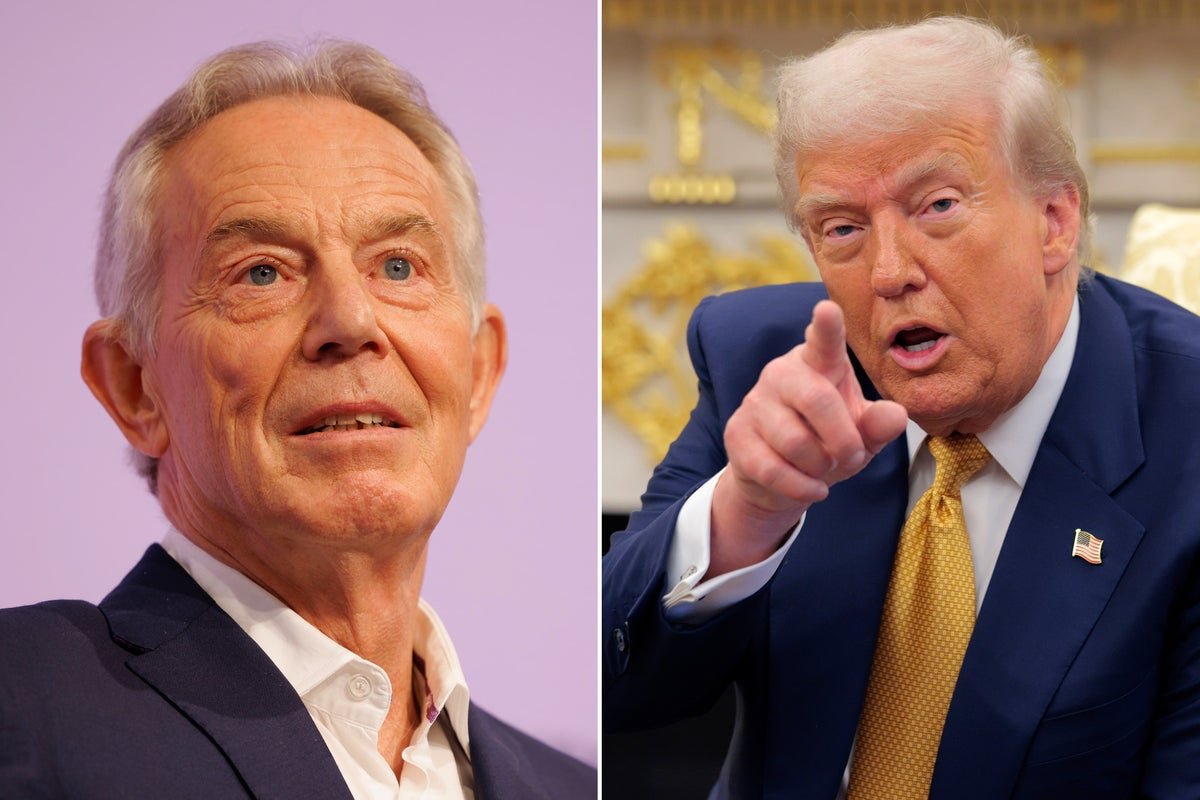
It is easy to roll one’s eyes at the presence of Sir Tony Blair, septuagenarian ex-prime minister, consultant to some questionable leaders and regular figure in the first-class lounges of international travel. So, the news that the most dynamic pensioner in British politics has been back on the squishy cream White House sofas close to US power should not surprise us.
Nonetheless, the reports that Blair has been to Washington for the second time this year to discuss the “day after” future of Gaza with Donald Trump and his son-in-law and Middle East fixer, Jared Kushner, have piqued many. The popular children’s author and BBC presenter Michael Rosen captured a withering sense of left-wing allergy to “TB” in a post on X this week, which went: “‘So, Mr Blair, what are your qualifications for talking about Gaza?’ ‘I bombed Iraq.’ ‘Fair enough.’”
Yet the man whose eponymous Tony Blair Institute – a glossy, well-staffed entity advising states and businesses on policy and technology – remains confident of his personal pulling power.
While his meeting with Trump is a personal undertaking, his institute proudly proclaims on its website: “We help governments and leaders get things done” – a mission statement that its figurehead lives by.
The Times of Israel this week provided more detail on the content of the session, reporting that Blair has been putting together a post-war Gaza plan for the past several months, “meeting with various regional stakeholders to get their input and support for his efforts”, a source told the paper. The former British premier, it added, has been in regular touch with both Kushner and Trump’s most trusted foreign policy emissary, Steve Witkoff, to formulate plans ahead of the encounter.
In terms of regional knowledge, Blair is, in fact, rather better qualified than many to be involved in the endgame of the Israel–Gaza conflict and to salvage some hope from the bitterness and physical and mental rubble. He knows Jerusalem and Gaza well, having previously spent nearly eight years as special representative of the “Quartet”, an international body seeking a peace agreement between Israel and the Palestinians.
In an interview last year, he told me that the besieged territory of Gaza should be governed by neither Israel nor Hamas, but rather by an unspecified third party as part of a peace deal to “begin a process of reconstruction”. He pointed out that he had visited Israel hundreds of times and would be seen as an honest broker.
The present plan by Benjamin Netanyahu, Israel’s implacable leader, to take over the territory in a fresh ground offensive does not sound like the “third party” solution Blair once embraced – and which the Biden administration also discussed with him via emissaries in Qatar.
This meeting, however, does show that the US, in its on-off manner, is refocusing both on the need to stem the suffering in Gaza now and on “day after” plans for an end to the fighting, when and if the Israeli final offensive clears Hamas from its last redoubts. The wider international community has also lost patience with Israel’s argument of self-defence, fired up by the dreadful images of blood-soaked suffering on the ground, resulting in Keir Starmer backing recognition of a Palestinian state.
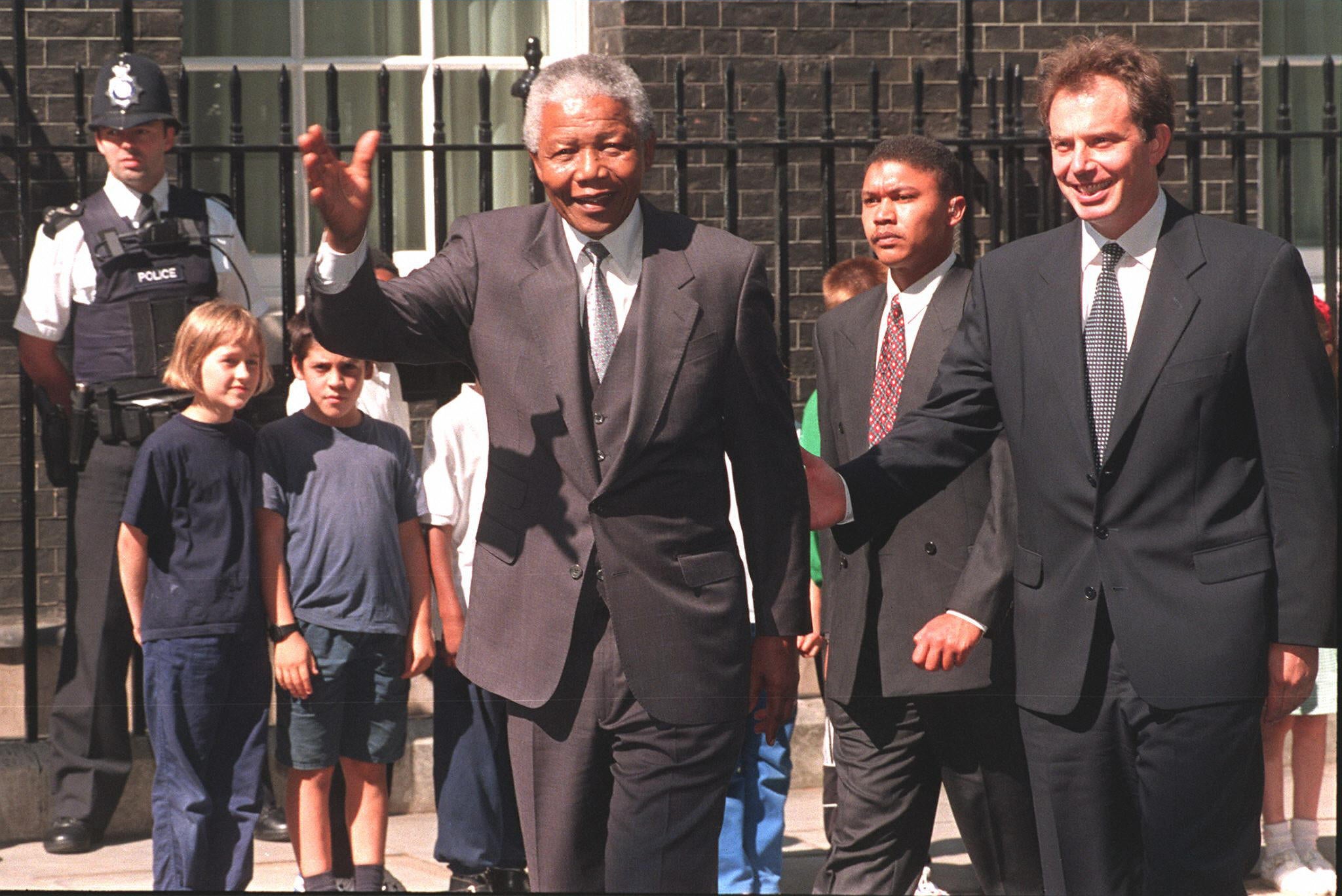
open image in gallery
This has left the odd situation in which Blair and Starmer seem, on the surface, to be pursuing two separate tracks. Starmer wants to foreground recognition at the UN summit in September. Blair’s focus is on leveraging Trump’s professed horror at the starvation and suffering in Gaza to open up more humanitarian aid channels and flesh out the president’s so-called “Gaza Riviera” proposals. The fate of Palestinians and their land claims within it remains highly uncertain.
Starmer does not greatly object to Blair’s activities because they can help smooth the diplomatic wheels. Good relations between Blair and Trump take the edge off any potential conflict about the differing UK and US approaches to the crisis, which might otherwise overshadow a state visit in September intended to consolidate trade links.
The link with Kushner and his wife, Ivanka, also creates an “in” with a mercurial president few can match. At the Davos gathering of the great, the good – and frankly just the rich and connected – a few years ago, I watched Blair and Ivanka, in full designer wear and towering heels, cosy up in deep conversation at a last-night party hosted by Matthew Freud. Both looked bedazzled by the other. Blair has a politically pheromonal effect on the global elite and you could see it in full glow on Trump’s daughter and son-in-law.
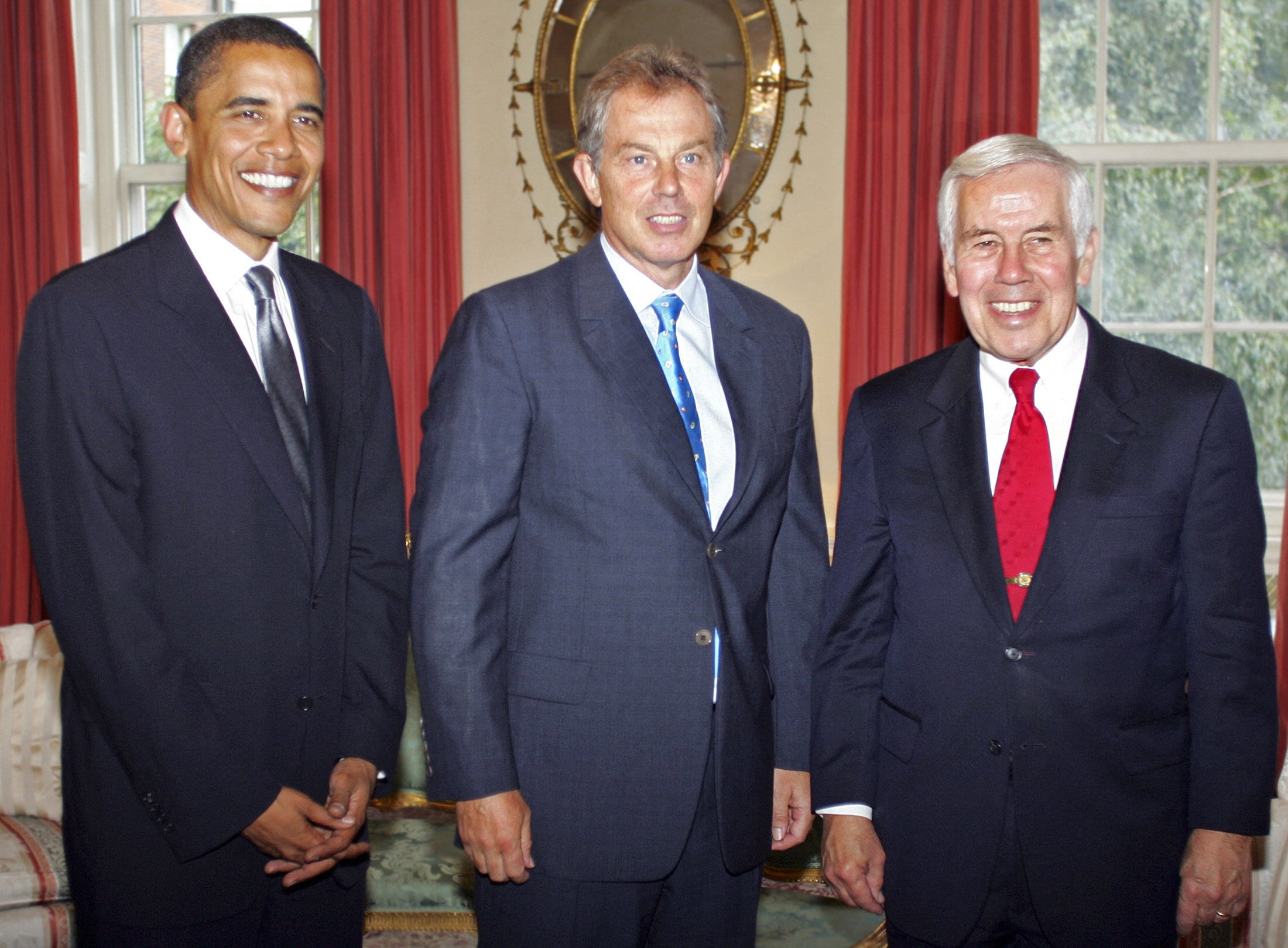
open image in gallery
Glitz and connection are the currency of the post-office years and Blair, of course, has his old friend and supporter Peter Mandelson currently ensconced as ambassador to the US.
As one fellow inhabitant of his old Number 10 network puts it, “The band is back together again.” Quietly, many former close allies of the New Labour titan have moved into commanding positions around Starmer. These include Blair’s former chief of staff, Jonathan Powell, now security adviser, and another favourite, Liz Lloyd, who previously served as deputy chief of staff to Blair, and is now director of policy delivery and innovation within the turbulence of the present No 10 policy swamp.
One figure who is often neglected, but who matters a lot, is Cherie Blair, who has long supported the Palestinian cause and whose Foundation for Women has partnered with grassroots operations to support Palestinian women to become more economically independent.
The couple are now proud grandparents of two, but they both still enjoy the international limelight. Notwithstanding heart surgery in 2004, Blair looks physically fit, with blazing blue eyes, and told me he listened to 2020s music recommended by his children on the home gym treadmill most days. It keeps him match-fit for a frenetic schedule, which comes with a combination of money-spinning and relentless globetrotting, even if it means working with some questionable governments.
When he ran the Tony Blair Associates consultancy in 2011, he attracted opprobrium for working with the Kazakh dictator Nursultan Nazarbayev and advising him on how to handle the fallout from the killing of 14 demonstrators in an uprising against an autocratic and often violent regime.
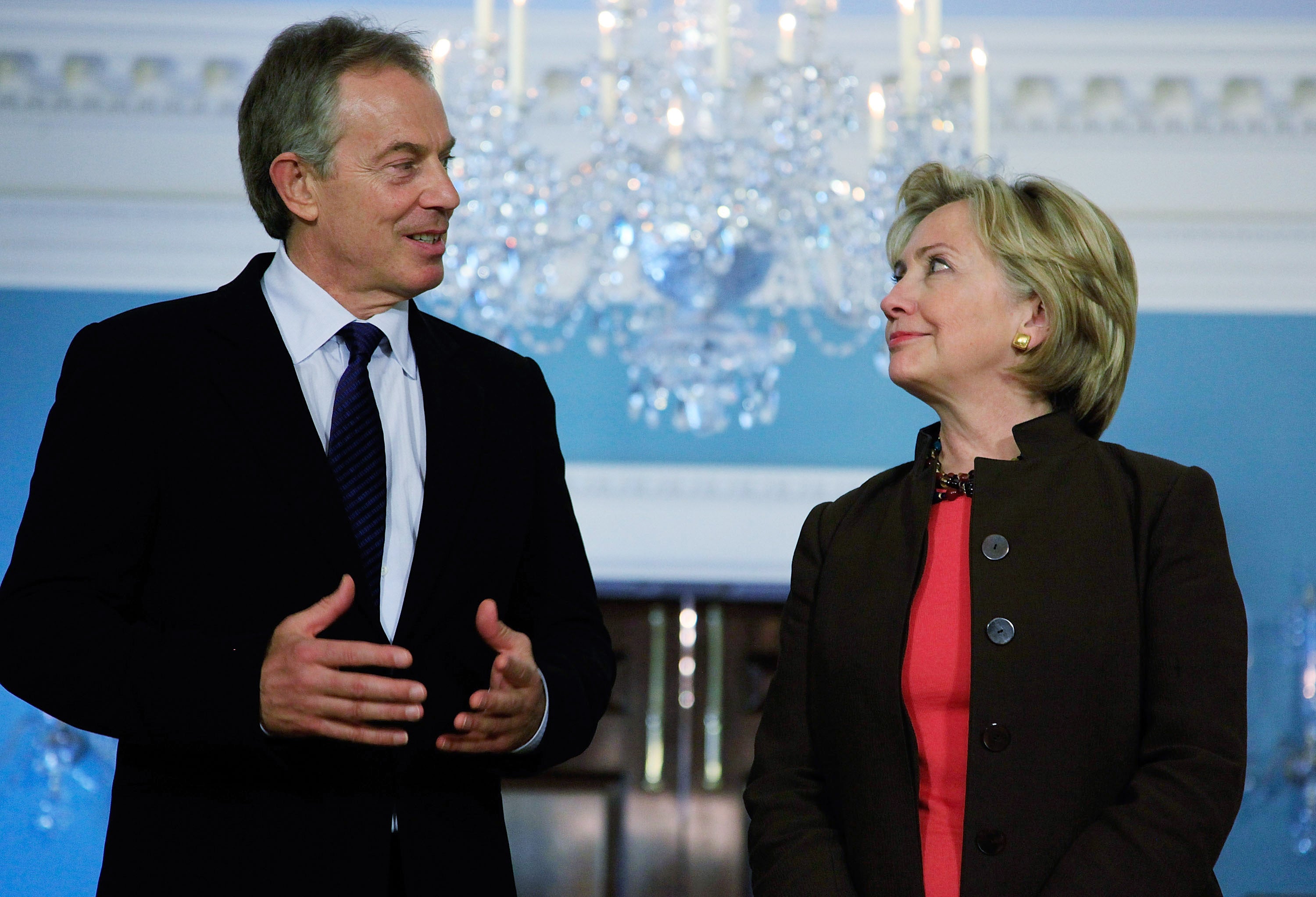
open image in gallery
Blair told me he used his fees to fund his interfaith and other charity work, as well as to set up an infrastructure for his mix of private work and not-for-profit endeavours, and had been trying to “assist the country in the way it is changing”. However, Nazarbayev continually oppressed the opposition, inserted a favoured successor in 2019 and only left the country’s powerful security council in 2022 — after another uprising.
Over time, Blair accepted that this kind of entanglement sat badly with his broader aims of remaining on the high-level stage of international affairs. These days, the Tony Blair Institute keeps its focus on high politics, while others work on his behalf, advising governments, royal courts and tech bosses on everything from the benefits of AI and technology to strategies on climate and energy that balance ambition with economic realism, and how to successfully run the NHS app.
Many of his top staffers are drawn from the team closest to him in his prime ministerial days – the down-to-earth Julie Crowley, who he jokes “runs his life”, and Catherine Rimmer, who used to be his prep person for Prime Minister’s Questions. The Institute now has more than 900 staff worldwide and has expanded offices to the West Coast of the US as well as New York, with representatives in the Middle East, and donors including Larry Ellison, the founder of the AI giant Oracle, who has given more than $50m to the organisation, pledging even more for this year and beyond.
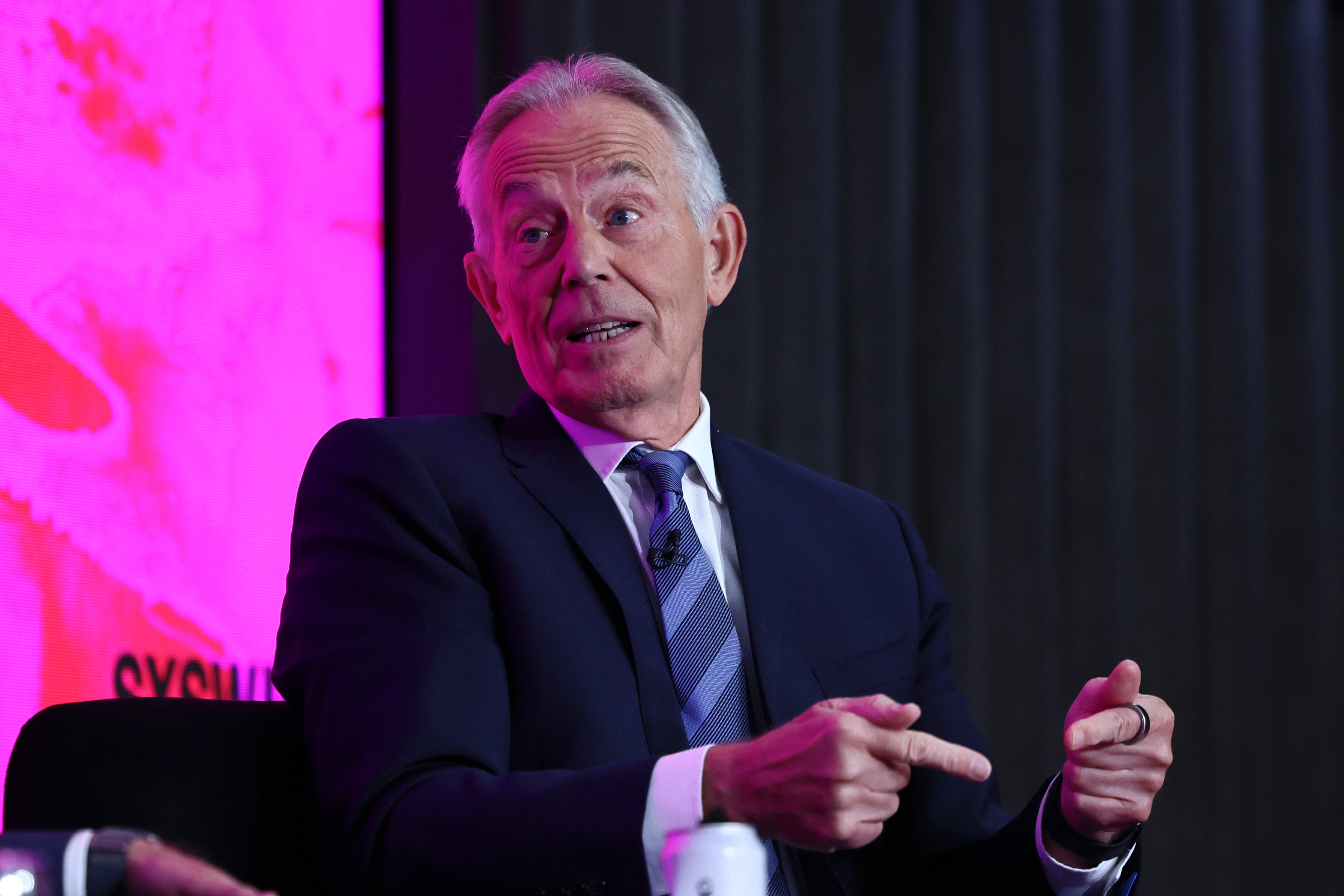
open image in gallery
In a Vanity Fair interview a decade ago, which probed his scruples around the countries he chose to work with when a lucrative or interesting consultancy role arose, Blair replied:
“If we don’t work in any country where there are problems of human rights, you’re going to be working with a small list of countries. For me, the challenge is always, ‘Is the leadership trying to do things that we believe are beneficial and of value?’ – if they are, we’ll support them.”
That is the same philosophy which now sees him sitting comfortably with Trump and his family today. Their UK guest feels in many ways more comfortable in the American way of ceaselessly moving forward, upheld by unending self-belief that he can make the world a better place. Blair, the one-man, unofficial UK ambassador for everything, will be where he most loves to be – in the rooms where power is wielded and the fates of many others are decided.
Anne McElvoy is co-host of ‘Politics at Sam and Anne’s’
